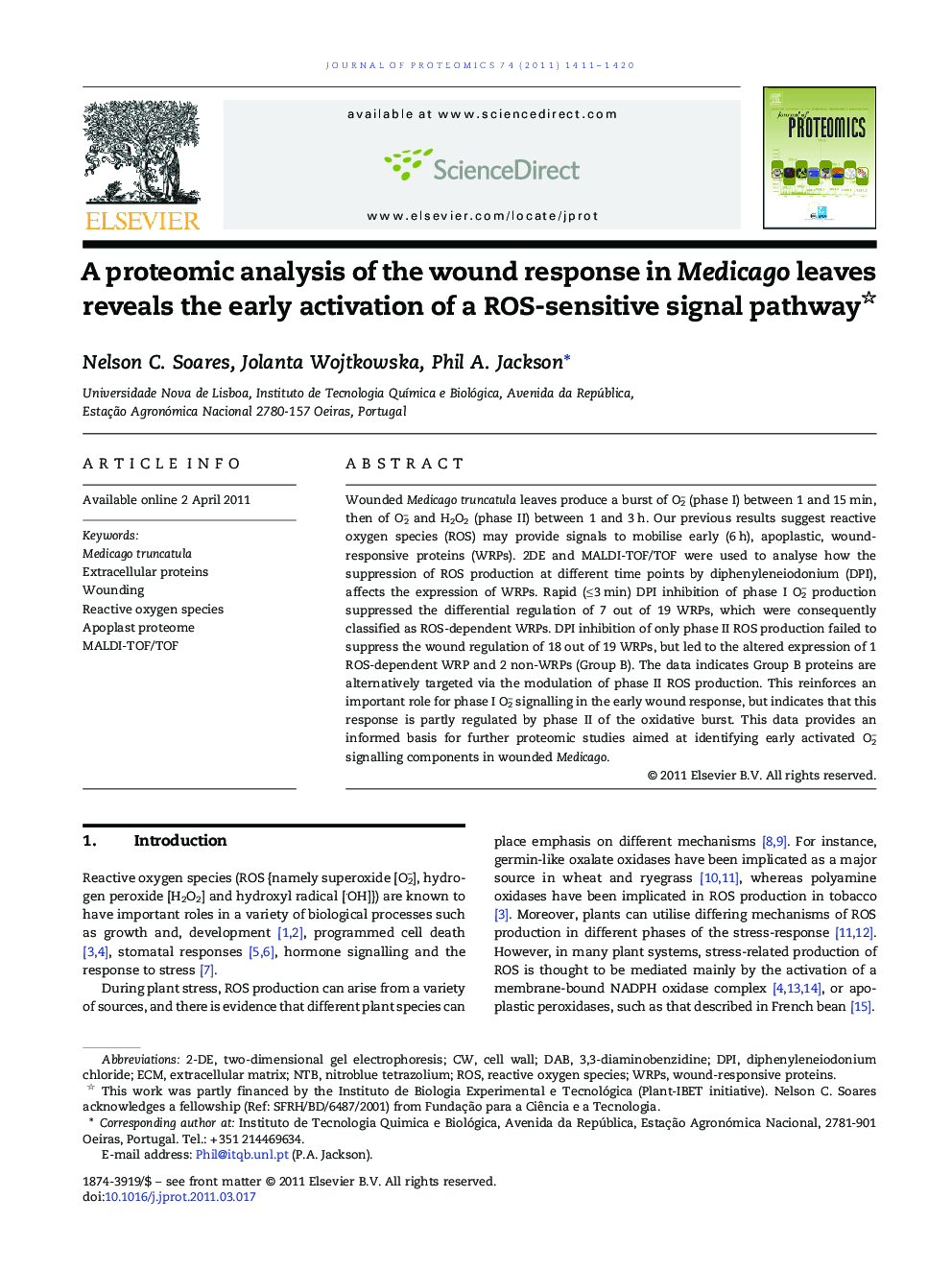| کد مقاله | کد نشریه | سال انتشار | مقاله انگلیسی | نسخه تمام متن |
|---|---|---|---|---|
| 1225808 | 968253 | 2011 | 10 صفحه PDF | دانلود رایگان |

Wounded Medicago truncatula leaves produce a burst of O2− (phase I) between 1 and 15 min, then of O2− and H2O2 (phase II) between 1 and 3 h. Our previous results suggest reactive oxygen species (ROS) may provide signals to mobilise early (6 h), apoplastic, wound-responsive proteins (WRPs). 2DE and MALDI-TOF/TOF were used to analyse how the suppression of ROS production at different time points by diphenyleneiodonium (DPI), affects the expression of WRPs. Rapid (≤ 3 min) DPI inhibition of phase I O2− production suppressed the differential regulation of 7 out of 19 WRPs, which were consequently classified as ROS-dependent WRPs. DPI inhibition of only phase II ROS production failed to suppress the wound regulation of 18 out of 19 WRPs, but led to the altered expression of 1 ROS-dependent WRP and 2 non-WRPs (Group B). The data indicates Group B proteins are alternatively targeted via the modulation of phase II ROS production. This reinforces an important role for phase I O2− signalling in the early wound response, but indicates that this response is partly regulated by phase II of the oxidative burst. This data provides an informed basis for further proteomic studies aimed at identifying early activated O2− signalling components in wounded Medicago.
Graphical AbstractFigure optionsDownload high-quality image (73 K)Download as PowerPoint slide
Journal: Journal of Proteomics - Volume 74, Issue 8, 12 August 2011, Pages 1411–1420